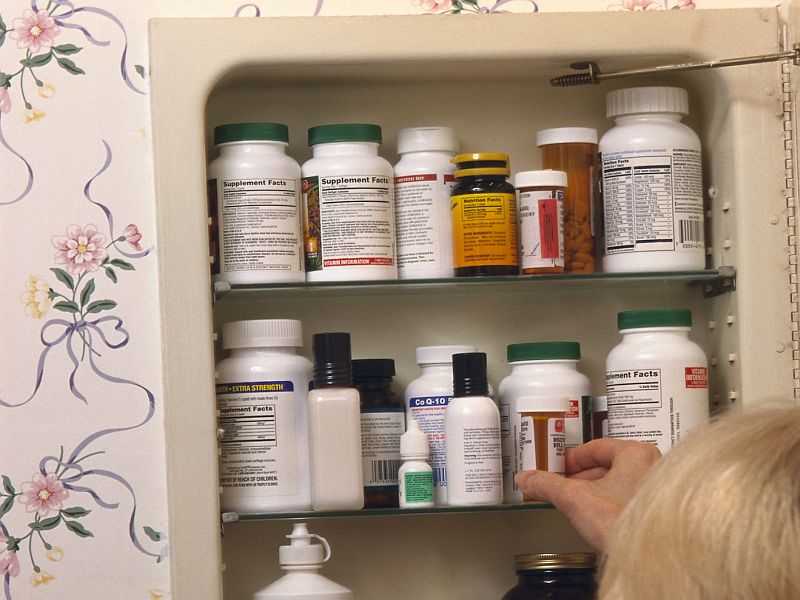
Tuesday, May 10, 2016

TUESDAY, May 10, 2016 (HealthDay News) -- A popular over-the-counter heartburn medication accelerated aging of blood vessel cells in lab tests, raising red flags about its long-term effect on heart health, researchers say.
Faster aging of blood vessel cells exposed to the antacid Nexium (esomeprazole) might potentially hinder the tasks these cells perform to prevent heart attack and stroke, the new study suggests.
These lab results could explain why other studies have shown increased risk of heart disease in people who use proton pump inhibitors (PPIs) -- the class of heartburn medication that includes Nexium, said study senior author Dr. John Cooke.
"Our finding that the lining of blood vessels is impaired by proton pump inhibitors is a unifying mechanism for the reports that PPI users are at increased risk for heart attack, stroke and renal failure," said Cooke, chair of cardiovascular sciences at the Houston Methodist Research Institute.
AstraZeneca, the maker of Nexium, responded with a statement noting that the study was conducted in a laboratory setting, "not in humans within a controlled clinical trial. Therefore, conclusions around cause and effect cannot be made.
"Patient safety is an important priority for AstraZeneca and we believe all of our PPI medicines are generally safe and effective when used in accordance with the label," the drug maker said.
However, many people aren't using PPIs in accordance with FDA guidelines, which in Nexium's case would limit them to a four-week course of treatment three times a year, Cooke said.
"They are being used ubiquitously, for long periods of time. They aren't being used as originally approved," Cooke said.
Dr. P.K. Shah, director of the Oppenheimer Atherosclerosis Research Center at Cedars-Sinai Medical Center in Los Angeles, said these study results provide a reasonable explanation for how PPIs might affect the heart health of long-term users.
"We have clinical data that raises a suspicion that they might be bad if used long-term, and we have now experimental data that suggests a potential mechanism," Shah said. "But we still have unanswered questions."
For this study, Cooke and his colleagues cultured the cells that line the walls of blood vessels, which are called endothelial cells.
These cell cultures were exposed every day to doses of Nexium "similar to what a patient would receive" for an extended period of time, Cooke said.
Protective endothelial cells produce substances that relax the blood vessel, and create a slick "Teflon" coating inside the vessel that prevents plaques or blood clots from sticking, Cooke said.
PPIs treat heartburn by blocking acid-producing cells in the lining of the stomach, Cooke said. But researchers now suspect PPIs might also interfere with acid-producing cells elsewhere in the body.
In the case of blood vessel cells, researchers found that long-term PPI exposure impaired acid production by the lysosomes in the cells. Lysosomes typically clear waste products, but exposed to PPIs they didn't produce enough acid to clear waste.
The waste buildup caused endothelial cells to age rapidly, Cooke said, which could hamper their ability to protect blood vessels.
"They start to convert from Teflon to something more like Velcro," he said. "Things begin to stick."
Another prominent class of heartburn medications, H2 blockers, did not have the same aging effect on blood vessel cells, the study found. H2 blockers include Tagamet (cimetidine), Pepcid (famotidine) and Zantac (ranitidine).
Dr. Mark Creager, president of the American Heart Association, added that a lab study like this cannot prove a direct link between PPI use and increased risk of heart attack or stroke.
"It certainly raises the question. But now the question, once raised, needs to be answered in a well-designed clinical trial, which hasn't taken place yet," said Creager, a professor of medicine at Harvard Medical School. "I would not advise clinicians to jump from this important basic science study to recommendations they would provide to their patients."
Another expert said PPIs should be used with caution due to possible harms "that have nothing to do with the digestive system."
"Much more work needs to be done before we can draw a line with confidence from this class of drugs to some of these potential side effects, but these researchers are taking an important first step," said Dr. David Robbins, interim chief of gastroenterology at Lenox Hill Hospital, in New York City.
"Bottom line: If you take a daily PPI, which can save lives in the right scenario, check with your doctor and see if you really need it," Robbins said.
Lifestyle adjustments -- such as exercising, cutting down on alcohol or caffeine, and avoiding heavy meals just before bedtime -- might also ease heartburn, Cooke added.
The findings were published May 10 in the journal Circulation Research.
SOURCES: John Cooke, M.D., Ph.D., chair, cardiovascular sciences, Houston Methodist Research Institute, Texas; P.K. Shah, M.D., director, Oppenheimer Atherosclerosis Research Center, Cedars-Sinai Medical Center, Los Angeles; Mark Creager, M.D., professor, medicine, Harvard Medical School, and director, vascular medicine, Brigham and Women's Hospital, Boston; David H. Robbins, M.D., MSc, interim chief, division of gastroenterology, Lenox Hill Hospital, New York City; May 10, 2016, Circulation Research
HealthDay
Copyright (c) 2016 HealthDay. All rights reserved.
News stories are provided by HealthDay and do not reflect the views of MedlinePlus, the National Library of Medicine, the National Institutes of Health, the U.S. Department of Health and Human Services, or federal policy.
- More Health News on:
- Heartburn





























.png)











No hay comentarios:
Publicar un comentario